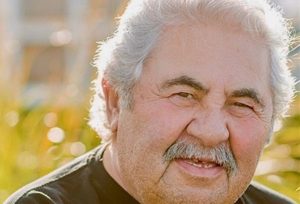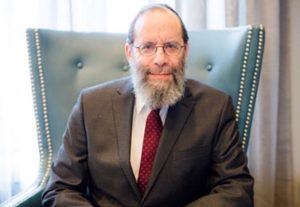Civil rights legend Martin Luther King Jr. dreamed of a “beloved community” where people could live together without being divided by race.
More than 50 years after he was murdered in pursuit of that dream, his eldest son and daughter-in-law continue the search, a struggle made more challenging by a toxic sewer of online hate.
Martin Luther King III told an online anti-hate summit April 14 that while social media has made it easy for people to spew hatred, it can also become a powerful tool for those trying to stop the spread of that sewage.
The worst of the problem was seen during the presidency of Donald Trump, of who, King said “It is not an exaggeration to say used Twitter to feed hatred.”
Arndrea Waters King, however, offered a vision of the other side, when she spoke of the way social media can be used as a tool of education – the one thing that can stop the spread of hatred.
“The proponents of hate are never going to cease,” she said. “We have to declare eternal war on the ignorance that breeds hate.
“Hate can only be countered by education,” she added.
The husband-wife tag team were the featured attraction at a two-day-long event organized by the Centre for Israel and Jewish Affairs and the federal government to ponder ways of balancing freedom of expression and freedom from hate.
One of the tactics the Kings have adopted is to shield their 12-year-old daughter Yolanda from almost all social media.
“There is just too much dangerous garbage on Facebook, Twitter, Instagram and other sites,” Arndrea King said. “We try to build a social media diet for her that builds character.”
For Martin King, creating the ideal world his father dreamed of will require people of good conscience to find ways of working together – a goal he thinks the younger generation is moving toward.
Arndrea King adds she’s encouraged by the diversity she is seeing in the modern civil rights movement.
“We are seeing young people come together like never before,” Martin King added. “It doesn’t mean we are unified yet, but we are starting to work together.”
Jews, they added, have been staunch allies in that struggle – Martin King noted, for example, as many as a third of the volunteers mounting the 1960s-era voter registration campaigns of the Southern Christian Leadership Conference were Jews.
Jews such as Rabbi Abraham Joshua Heschel marched arm-in-arm with Martin King’s father in places like Selma, Ala., where official hatred showed its scarred and ugly face to the entire world.
Among those prodded to action by television images from Selma was Hamilton-based Rabbi Eugene Weiner, of the city’s Beth Jacob Congregation. He responded to King’s call for support by organizing a contingent of local clergy to travel to Alabama.
“There is a long history of mutual support in our ongoing struggle,” Martin King said. “Jews have helped in all phases of the struggle, and it has not just been rabbis.”
Some, the Kings said, such as Andrew Goodman and Michael Schwerner, faced more than harassment for backing the struggle.
In June 1964 they were kidnapped and murdered in Mississippi, along with a Black colleague James Chaney, while working to register African-Americans in the state to vote. It was not until 2005 when one of their killers was convicted and sentenced to prison for the crime.
Their lives, Martin King said, “are part of the currency that has purchased the freedom African-Americans enjoy today.”







